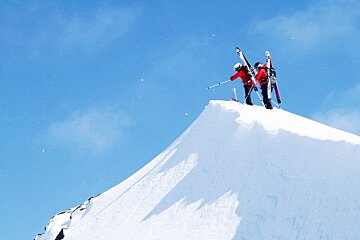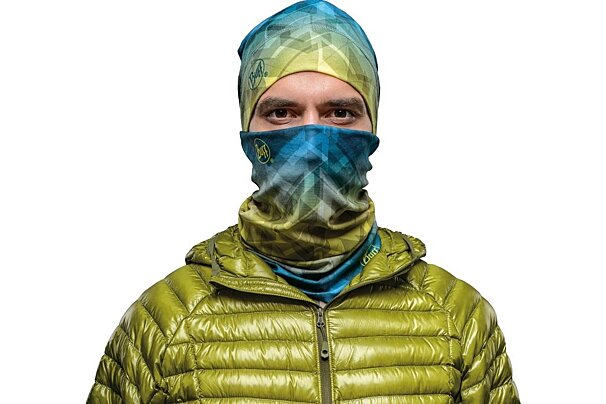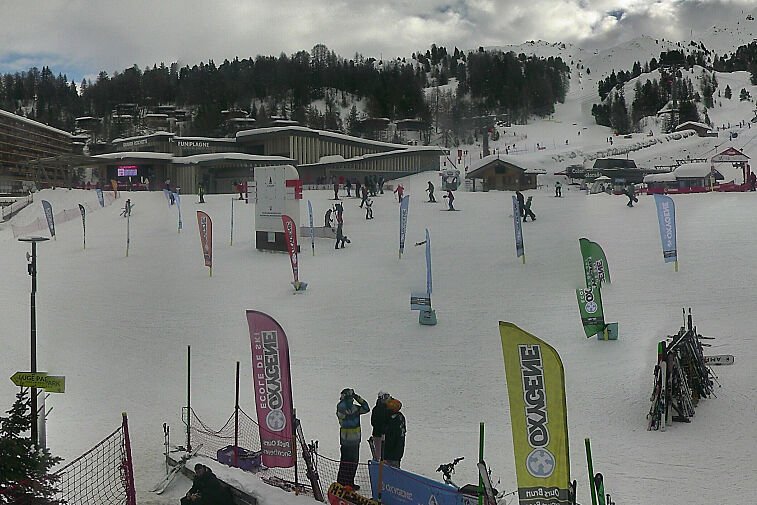
© Duncan McCallum

© Emily Jones FB

© Mountain Rescue Blog
What's New in the Ski Industry for Winter 2012-2013?
Part 1 - New insurance policies and the growth of the backcountry sector
No longer summer and definitely not yet winter - interseason in the Alps is a tricky time to keep one’s mind occupied. Some folks make the most of the opportunity to leave the valley, see friends, or visit warmer climes to recharge before the winter onslaught, but for those who remain, this is a time for patience - a waiting game.
Winter will tease then disappear, reminding us of the no-man’s land that is November in a mountain town. At Skinets HQ, we’re all about keeping occupied and so we’re spending our time dusting down kit, watching long term weather forecasts, growing moustaches (!), and catching up with what’s new in the ski industry as we wait for the season to officially start.
One area of the industry that is really being given some focus this year is safety. Whether you’re hucking cliffs in the backcountry or merely riding the pistes at speed with hundreds of other snow lovers, skiing comes with a degree of risk and it is likely that you’ll experience some kind of injury at some point during your skiing career. Over recent years there has been a big move towards wearing helmets on the hill as more and more skiers/snowboarders recognise the inherent dangers involved in the sport and the importance of their brains, heads and necks. Research indicates that 77% of British skiers now wear helmets on the mountain and this winter sees this trend officially validated from an insurance perspective as leading travel insurance company, Essential Travel, have announced that they will no longer cover clients who refuse to wear a helmet on the piste. Proving and determining whether a skier/rider was wearing a lid may be slightly problematic for the company but perhaps the main opposition to the announcement will come from those who do not like being told what to do. At Skinets HQ we’d like to know what you think of the decision so feel free to use our comments box below.....let the brain debate begin!
Last year’s epic powder season in the Alps combined with the annual autumnal raft of spectacular big mountain ski films currently plastered all over the internet indicates that off piste skiing is likely to be more popular than ever this winter. The backcountry sector of the ski industry is experiencing enormous growth and the recent $43.5m purchase of mainstream protective gear manufacturer POC by outdoor/adventure equipment maker Black Diamond is a pretty serious indication of the way things are going. The backcountry sector is becoming so powerful that even the traditional and mainstream ski brands such as Scott and Salomon are adding avalanche probes, shovels, alpine touring boots/bindings, and ski mountaineering specific helmets to their product range. Another example of the popularity of freeride and off piste ski touring can be found in the case of US company Flylow. In a tough economy where some of biggest names are shedding product lines - as happened recently with Burton Snowboards - this Colorado-based backcountry/freeride specific clothing manufacturer have been picking up a series of accolades and awards in North America for their apparel and are now expanding into Europe this winter. Their kit is designed to be functional and technical, yet stylish, comfortable and affordable and is set to fill the existing gap in the market between hi-tech mountaineering brands and baggy, park style apparel.
Increased activity in the backcountry inevitably brings with it increased avalanche risk and this season sees more and more companies incorporating avalanche survival aids into their product portfolios. Mammut, Dakine and The North Face are three companies now producing backpacks using technology from leading avalanche airbag manufacturers Snowpulse and ABS. Check out our very own James Fisher’s video guide to all the latest snow safety technology and products on the market to help you keep you on the top in the case of a snow slide in the backcountry. It’s all good stuff but remember, nothing is going to keep you safer than knowledge - so we advise always travelling with a mountain guide when venturing away from resort and highly recommend signing yourself up for an avalanche awareness course so that you are better equipped to make the most appropriate judgement calls.
The ski industry is always evolving and we're excited to see how this freeride/backcountry trend plays itself out. In Part 2 of 'What's New in the Ski Industry' we'll be taking a look at the latest developments in the travel and business sectors but until then, keep up to date with all the latest goings on in resort by checking the what's on section of the site.






























